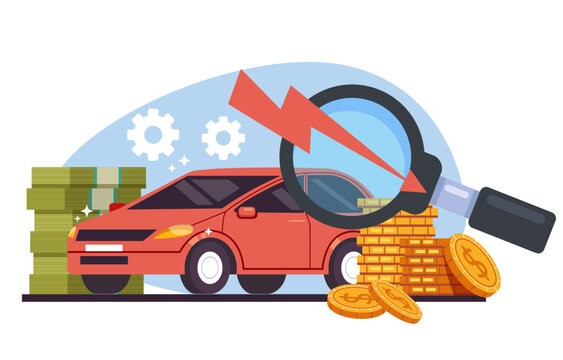Buying a new car is one of the most significant investments many South Africans make, but it’s crucial to understand how quickly this investment can lose value. Car depreciation is a reality that affects all vehicle owners, and the rate at which a new car depreciates can have a significant impact on its long-term value. This article explores the factors influencing car depreciation in South Africa, how quickly a new car loses value, and what buyers can do to mitigate these effects.
What is Car Depreciation?
Car depreciation refers to the decline in a vehicle’s value over time. From the moment you drive a new car off the dealership lot, it begins to lose value. Depreciation is influenced by a variety of factors, including the make and model of the car, its condition, mileage, and market demand. In South Africa, the rate of depreciation can vary significantly depending on these factors, as well as broader economic conditions.
The Depreciation Timeline: First Year Losses
The first year of ownership is when a new car typically experiences the steepest depreciation. On average, a new car in South Africa loses between 15% to 25% of its value within the first year. This rapid decline is largely due to the car transitioning from “new” to “used” status, which significantly reduces its market value. The specific rate of depreciation in the first year can vary based on the brand and model, with luxury cars often depreciating faster than more affordable vehicles.
Depreciation in the First Three Years
After the initial year, a car continues to depreciate, but at a slower rate. By the end of the third year, the average car in South Africa has lost approximately 40% to 50% of its original value. This period is crucial for car owners who may be considering selling or trading in their vehicle, as the car is still relatively new, and the rate of depreciation begins to stabilize. However, factors such as mileage, condition, and market trends can still significantly impact the car’s value.
Factors Influencing Depreciation Rates
Several key factors influence how quickly a car depreciates in South Africa. The brand and model of the car play a significant role, with well-known and reliable brands like Toyota and Volkswagen generally depreciating more slowly than less popular or luxury brands. The car’s condition is another critical factor; vehicles that are well-maintained and have low mileage tend to hold their value better. Additionally, market demand for specific models can affect depreciation, with high-demand cars retaining their value longer.
The Impact of Mileage on Depreciation
Mileage is one of the most significant factors affecting a car’s depreciation rate. In South Africa, the average car is driven about 20,000 to 25,000 kilometers per year. Vehicles that exceed this average tend to depreciate faster, as higher mileage is often associated with more wear and tear. Conversely, cars with lower-than-average mileage may retain their value longer, making them more attractive to buyers in the used car market.
How to Mitigate Depreciation
While depreciation is inevitable, there are steps that car owners in South Africa can take to slow the rate at which their vehicle loses value. Regular maintenance and servicing are crucial, as a well-maintained car is more likely to retain its value. Keeping the car’s mileage low by using alternative modes of transport when possible can also help. Additionally, choosing a car with a strong resale value from the outset, such as those from reputable brands, can make a significant difference in how much value is retained over time.
Conclusion: Making Informed Decisions
Understanding how quickly a new car depreciates in South Africa is essential for making informed purchasing decisions. While depreciation is unavoidable, being aware of the factors that influence it can help buyers choose vehicles that will hold their value better over time. By considering depreciation rates, mileage, and maintenance, car owners can maximize their vehicle’s resale value and minimize financial losses.





